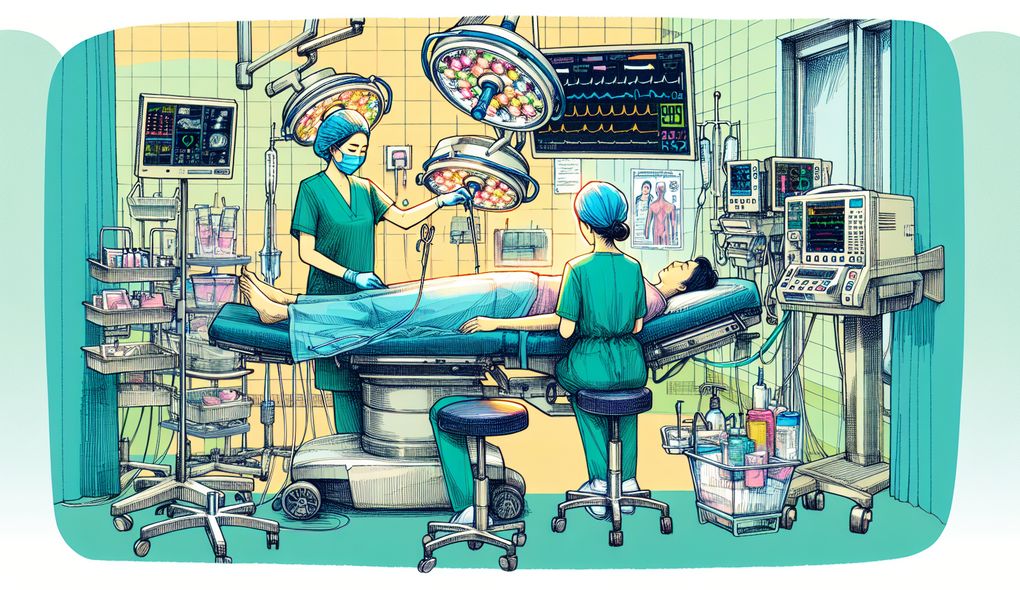Describe a time when you had to think critically and problem-solve in your role as a Medical-Surgical Nurse.
INTERMEDIATE LEVEL

Sample answer to the question:
One time as a Medical-Surgical Nurse, I had a patient who experienced complications after surgery. They developed a high fever and their blood pressure dropped significantly. I had to think critically and problem-solve to identify the cause of these symptoms and provide appropriate care. I quickly assessed their vital signs, reviewed their medical history, and consulted with the physician. We suspected an infection and ordered a blood culture. In the meantime, I administered IV fluids to stabilize their blood pressure and initiated appropriate antibiotic therapy. The blood culture confirmed the presence of a severe infection, and the patient was transferred to the ICU for further treatment. I continued to monitor their progress closely, collaborating with the healthcare team to ensure their recovery. This experience required me to think on my feet, make quick decisions, and communicate effectively with the entire healthcare team.
Here is a more solid answer:
As a Medical-Surgical Nurse, I encountered a situation that required me to think critically and problem-solve. One of my patients developed severe abdominal pain and became pale, indicating potential internal bleeding. I acted promptly by assessing their vital signs, reviewing their medical history, and notifying the physician immediately. Together, we decided to order an urgent CT scan to confirm the source of bleeding. While waiting for the scan results, I administered intravenous fluids to maintain their blood pressure and prepared the necessary blood products for transfusion if needed. The CT scan revealed a ruptured splenic artery aneurysm, and the patient was rushed to surgery for an emergency splenectomy. Throughout this critical situation, I communicated updates to the healthcare team, ensuring everyone was aware of the patient's condition and the plan of action. By thinking critically, acting swiftly, and collaborating effectively, we were able to save the patient's life.
Why is this a more solid answer?
The solid answer provides specific details about the critical thinking process, problem-solving strategies, collaboration with the healthcare team, and effective communication. It demonstrates the candidate's ability to assess and prioritize the situation while effectively coordinating with the healthcare team.
An example of a exceptional answer:
In my role as a Medical-Surgical Nurse, I confronted a complex case that demanded extensive critical thinking and problem-solving abilities. A patient was admitted with signs of respiratory distress following surgery. The initial assessment indicated a potential pulmonary embolism, which required immediate intervention. In collaboration with the physician, we initiated treatment by administering oxygen, obtaining an arterial blood gas sample, and ordering a CT angiogram of the chest. Recognizing the urgency, I expedited the patient's transfer to the radiology department and closely monitored their condition. The CT angiogram confirmed massive bilateral pulmonary emboli. Without hesitation, I coordinated the administration of thrombolytic therapy, closely monitoring the patient's vital signs and response to the treatment. Throughout the process, I communicated the situation to the healthcare team, ensuring a seamless flow of information. Thanks to our critical thinking, quick decision-making, and effective collaboration, we successfully stabilized the patient's condition, preventing further complications.
Why is this an exceptional answer?
The exceptional answer goes above and beyond by providing a more complex and challenging scenario that required advanced critical thinking skills. It demonstrates the candidate's ability to handle high-pressure situations and make quick decisions while effectively collaborating with the healthcare team. The answer also highlights the candidate's proficiency in utilizing medical interventions to provide optimal patient care.
How to prepare for this question:
- Review case studies or scenarios related to critical thinking and problem-solving in medical-surgical nursing.
- Familiarize yourself with common complications and emergencies that may arise in medical-surgical nursing.
- Practice effective communication skills, both written and verbal, to ensure seamless collaboration with the healthcare team.
- Stay updated with the latest evidence-based practices and guidelines in medical-surgical nursing, as this knowledge can greatly support critical thinking and problem-solving abilities in real-life situations.
- Enhance your knowledge of relevant medical procedures and interventions to be better prepared for emergency situations.
What are interviewers evaluating with this question?
- Critical thinking and problem-solving
- Attention to detail
- Communication skills
- Collaboration and teamwork

